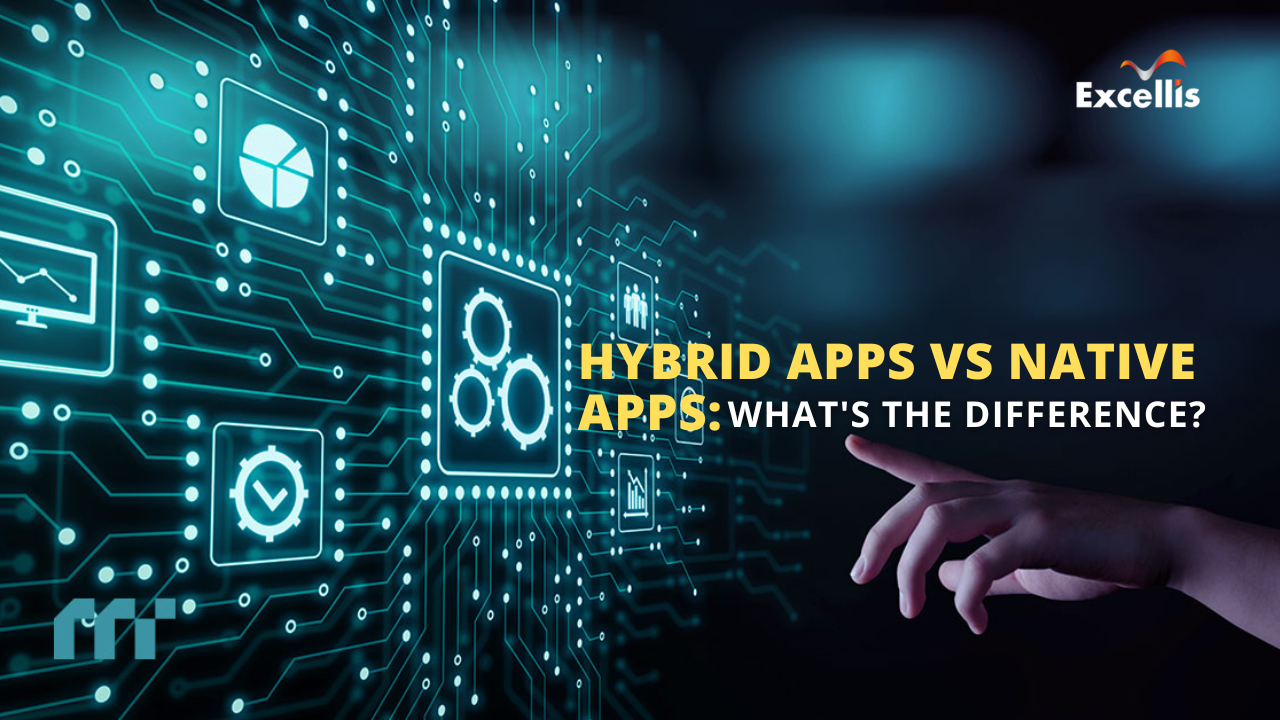
In today’s digital landscape, mobile apps play a crucial role in engaging users and driving business growth. Native apps and hybrid apps are two distinct methods of app development, each with its strengths and weaknesses. Understanding the differences between them is essential for making informed decisions about your mobile app strategy.
Mobile applications have become an essential part of our lives, providing convenience and functionality on the go. When it comes to developing mobile apps, two popular approaches are native app development and hybrid app development. Both have their merits and are used to create unique user experiences. In this article, we will explore the differences between these two approaches and help you understand which one may be the best fit for your needs.
Definition: Native App vs. Hybrid App
Native apps are built specifically for a particular platform, such as iOS or Android, using programming languages like Swift or Java. They are developed using platform-specific SDKs (Software Development Kits) and have direct access to the device’s hardware and software features. On the other hand, hybrid apps are developed using web technologies like HTML, CSS, and JavaScript. They are wrapped in a native container, allowing them to run on multiple platforms with a single codebase.
Development: Native App vs. Hybrid App
Native App Development
Native app development involves writing platform-specific code for each target operating system. This means separate development teams or resources for iOS and Android, resulting in higher development costs and longer time-to-market. However, native apps offer the advantage of taking full advantage of the platform’s capabilities, delivering optimal performance and seamless integration with the device’s features.
Hybrid App Development
Hybrid app development simplifies the process by using web technologies for creating cross-platform apps. Developers can write a single codebase that works on multiple platforms, saving time and effort. Hybrid apps rely on frameworks like React Native or Flutter, which provide access to native APIs, allowing them to utilize device-specific features. While hybrid apps may not match the performance of native apps in complex scenarios, they offer a faster development cycle and cost savings.
Features: Native App vs. Hybrid App
Native App Features
Native apps have a distinct advantage when it comes to utilizing platform-specific features. They can access hardware components like the camera, GPS, and accelerometer directly, offering a seamless user experience. Native apps also have better access to system resources, resulting in faster and smoother performance. Additionally, they can leverage platform-specific UI components, ensuring a consistent look and feel with other apps on the device.
Hybrid App Features
Hybrid apps, while built with web technologies, can still access some device features through native plugins or APIs provided by frameworks like React Native. This allows them to access the camera, geolocation, and other device capabilities. While hybrid apps may not have the same level of performance optimization as native apps, they can still deliver a satisfactory user experience for many applications.
Performance: Native App vs. Hybrid App
Native App Performance
Native apps are known for their superior performance, thanks to their direct access to system resources and hardware features. They are compiled into machine code, resulting in faster execution and smoother animations. Native apps can also take advantage of platform-specific optimizations, making them ideal for resource-intensive applications such as games or graphic-intensive applications.
Hybrid App Performance
Hybrid apps, being web-based, rely on web views to render their user interface. This can introduce some performance overhead compared to native apps. However, with advancements in hybrid app frameworks, such as React Native, the gap in performance has significantly narrowed. Hybrid apps can now deliver near-native performance, especially for applications that do not require extensive computational resources.
User Experience: Native App vs. Hybrid App
Native App User Experience
Native apps provide a seamless user experience, as they are designed specifically for a particular platform. They adhere to platform-specific design guidelines, ensuring familiarity and ease of use for users. Native apps also have the advantage of utilizing platform-specific gestures and interactions, which can enhance the overall user experience.
Hybrid App User Experience
Hybrid apps aim to provide a consistent user experience across different platforms. While they may not have the same level of platform-specific interaction and UI customization as native apps, they can still deliver a satisfactory experience. With the use of frameworks like React Native, developers can achieve a closer approximation of native app behavior and aesthetics.
Cost: Native App vs. Hybrid App
Native App Cost
Developing native apps can be more expensive compared to hybrid apps. Since native apps require separate development efforts for each platform, the cost increases significantly. Companies may need to hire dedicated development teams or outsource the development, which can add to the overall budget. Additionally, maintaining and updating separate codebases for different platforms can be time-consuming and cost-intensive.
Hybrid App Cost
Hybrid app development offers cost advantages due to its single codebase approach. With a single team and shared resources, development costs are reduced compared to native apps. The time-to-market is also shorter, as developers can simultaneously work on both iOS and Android versions using the same codebase. However, complex or performance-critical applications may require additional optimization efforts, which can impact costs.
Development Tools: Native App vs. Hybrid App
Native App Development Tools
Native app development requires platform-specific tools and SDKs. For iOS, developers use Xcode and Swift, while Android developers utilize Android Studio and Java or Kotlin. These tools provide comprehensive development environments, including simulators, debugging tools, and UI builders. Native app development tools have matured over the years, offering robust capabilities and a wide range of libraries and frameworks.
Hybrid App Development Tools
Hybrid app development relies on frameworks like React Native or Flutter, which provide a unified development environment. These frameworks enable developers to write code in familiar web technologies and deploy it as a native app. React Native, for example, offers hot reloading, which allows developers to see immediate changes during development. These frameworks also provide access to native APIs, ensuring access to platform-specific features.
Market Share: Native App vs. Hybrid App
Native apps have traditionally dominated the mobile app market. Both Apple’s App Store and Google Play Store have a vast collection of native apps, catering to various user needs. However, the hybrid app market has been growing steadily, thanks to advancements in frameworks and the desire for cross-platform development. Many popular apps, such as Facebook, Instagram, and Airbnb, have adopted hybrid app development approaches to reach a broader user base.
Conclusion
When deciding between native app development and hybrid app development, it’s crucial to consider your project requirements, budget, and target audience. Native apps offer superior performance and access to platform-specific features, making them ideal for resource-intensive applications. Hybrid apps, on the other hand, provide cost savings, faster development cycles, and the ability to target multiple platforms with a single codebase. Choose the approach that aligns best with your goals and resources.
More reasons to trust us!
Excellis IT is building a skilled team in IT support, customer support, digital marketing, and back-office services for modern companies.

Excellis it is an esteemed ISO/IEC 27001:2022 certified company

We achieved the prestigious certification by MSME in 2019

We are certified by the Central Vigilance Commission

We are an honoured members of NASSCOM since 2022






